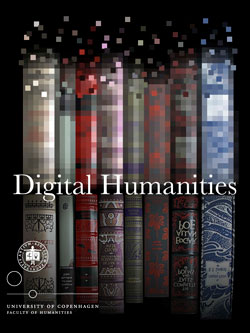Computing Time: Measuring Time in Narrative Using Computational Methods

Talks on the Digital Turn in the Humanities (2/4): Lecture by Professor and William Dawson Scholar Andrew Piper, McGill University, Canada.
Time is fundamental to the construction of narrative. There can be no narration without the passage of time, either as narrated time (the time of happening) or narrative time (the time of narrating). While the study of time in narrative has been central to the field of narratology for decades, to date we have very few examples of the large-scale study of time in narrative. In my talk, I will outline a preliminary sketch of various approaches to the computational study of time to better understand how different cultures or epochs have imagined the experience of time within narrative. Before we move to insights about time’s role within the practice of narration, we need a clearer understanding of what we mean by “time” and how it might be modeled. This talk is about exploring possible models of narrated/narrative time.
Bio
Andrew Piper is Professor and William Dawson Scholar in the Department of Languages, Literatures, and Cultures at McGill University. He is the director of .txtLAB, a laboratory for cultural analytics, as well as author most recently of Enumerations: Data and Literary Study (Chicago 2018). Piper’s work focuses on applying the tools and techniques of data science to the study of literature and culture, with particular emphasis on questions of cultural equality. He has on-going projects that address questions of cultural capital, academic publishing and power, and the visibility of knowledge.
Digital Humanities
Digital technologies are transforming teaching and research in the humanities. The Department of English, Germanic and Romance Studies is hosting four talks by international experts in the field. They will discuss the use of digital methodologies and tools and address the new possibilities and challenges. All are welcome to these free talks!
Please direct any questions to Robert Rix.
This is Talk No. 2/4.

